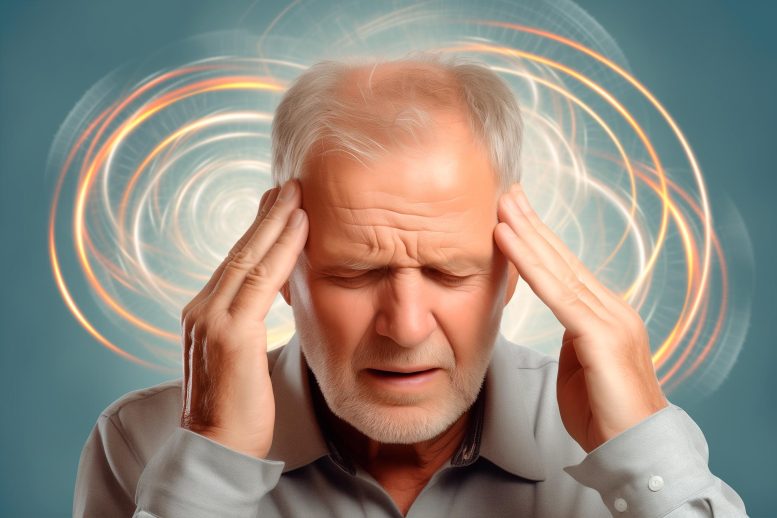
Researchers have identified a molecular mechanism responsible for noise-induced hearing loss through excess zinc in the inner ear. Their findings, which show promise in treating and preventing hearing loss with medication that traps excess zinc, could lead to over-the-counter options for protecting against hearing damage.
Anyone who has attended a loud concert is familiar with the sensation of ears ringing. Some individuals may suffer from temporary or permanent hearing loss, or significant alterations in how they perceive sound once the loud noises cease.
Thanos Tzounopoulos, Ph.D., director of the Pittsburgh Hearing Research Center at the University of Pittsburgh School of Medicine has focused his scientific career on investigating how hearing works and developing ways to treat tinnitus and hearing loss.
Discovering a Mechanism for Noise-Induced Hearing Loss
In a paper recently published in the Proceedings of the National Academy of Sciences, Tzounopoulos and his Pitt collaborators Amantha Thathiah, Ph.D., and Chris Cunningham, Ph.D., discovered a molecular mechanism of noise-induced hearing loss and showed that it could be mitigated with medication.
The study showed that noise-induced hearing loss, which affects millions of Americans, stems from cellular damage in the inner ear that is associated with the excess of free-floating zinc – a mineral that is essential for proper cellular function and hearing. Experiments in mice showed drugs that work as molecular sponges trapping excess zinc can help restore lost hearing or, if administered before an expected loud sound exposure, can protect from hearing loss.
The Challenge of Preventing Hearing Loss
“Noise-induced hearing loss impairs millions of lives but, because the biology of hearing loss is not fully understood, preventing hearing loss has been an ongoing challenge,” said senior author Thanos Tzounopoulos, Ph.D., endowed professor and vice-chair of research of otolaryngology at Pitt.
While some experience noise-induced hearing loss as a result of an acute traumatic injury to the ear, others notice a sudden hearing impairment after being continuously exposed to loud noise, for example in a battlefield or at a construction site. Others notice their hearing deteriorating after attending a loud music show.
Researchers say such noise-induced hearing loss can be debilitating. Some people start hearing sounds that aren’t there, developing a condition called tinnitus, which severely affects a person’s quality of life.
Groundbreaking Research and Future Treatments
Tzounopoulos’ research, which focuses on the biology of hearing, tinnitus, and hearing loss, strived to determine the mechanistic underpinnings of the condition in the effort to lay the groundwork for the development of effective and minimally invasive treatments in the future.
By performing experiments in mice and on isolated cells of the inner ear, researchers found that hours after mice are exposed to loud noise, their inner ear zinc level spikes. Loud sound exposure causes a robust release of zinc into the extra and intracellular space which, ultimately, leads to cellular damage and disrupts normal cell-to-cell communication.
Thankfully, this discovery opens doors for a possible solution. Experiments showed mice who were treated with a slow-releasing compound that trapped excess free zinc were less prone to hearing loss and were protected from noise-induced damage.
Researchers are currently developing a treatment to be tested in preclinical safety studies with the goal of making it available as a simple, over-the-counter option to protect oneself from hearing loss.
Reference: “Cochlear zinc signaling dysregulation is associated with noise-induced hearing loss, and zinc chelation enhances cochlear recovery” by Brandon Bizup, Sofie Brutsaert, Christopher L. Cunningham, Amantha Thathiah and Thanos Tzounopoulos, 14 February 2024, Proceedings of the National Academy of Sciences.
DOI: 10.1073/pnas.2310561121
The study was funded by the National Institutes of Health.
Other authors of the study are first author Brandon Bizup, Ph.D., and co-author Sofie Brutsaert, both of Pitt.










Zink dislodge from cells after undergo undesirable isotope changes from big noises, so cells from hearing organs dies as the result of impaired hearing that’s so far. And if expel out free zink by medications it returns some hearing state but not as before damaging.
Does zinc contribute to TINNITUS? If so, could it be that one possible cause of tinnitus is an increased level of zinc? Can the zinc be reduced?